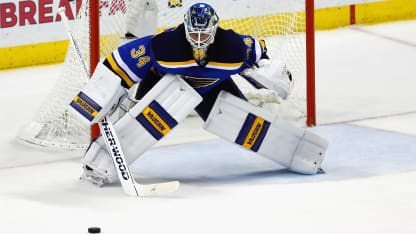4. David Perron thrives in familiar system
Perron spent the first six seasons of his NHL career with the Blues, averaging 14 goals and 19 assists.
He has played for three teams (Edmonton Oilers, Pittsburgh Penguins, Anaheim Ducks) the past two seasons; he fit in with the Ducks and had 20 points in 28 games.
The Blues are counting on Perron, 28, to offset some of the veteran losses.
"The experience of playing for other teams kind of shows you things of what you need to do to be successful," said Perron, who signed a two-year, $7.5 million contract. "I think it really hit home when I got to Pittsburgh and realized that it was a different style of play than I had been used to playing before. When I got to Anaheim, which is a very similar style of play to St. Louis, it's a style which I had been playing for a long time and had a lot of success that way."
Here are three key questions facing the Blues:
1. Can a coach-in-waiting system work?
Hitchcock announced this season, his sixth in St. Louis and 20th in the NHL, would be his last. He realized after a two-hour, face-to-face meeting that Mike Yeo is the best option to replace him.
Yeo will be an associate coach this season.
"I was really impressed with his willingness to learn, his willingness to be part of a staff," said Hitchcock, who is 757-453-106-88 in 19 seasons. "Mike has a burning desire to be a really good coach and I think there's some elements where we can both help each other. He's going to challenge me and he's going to make me better, and I think long-term I can help him get through the mine fields."
Yeo was fired by the Minnesota Wild on Feb. 13 after going 173-132-44 in four-plus seasons.
2. How do the Blues replace the veterans they lost?
By trusting veterans Alexander Steen, Kevin Shattenkirk, Paul Stastny and Alex Pietrangelo, as well as the younger core to move up to that next wave of players who lead by example.
The Blues showed their trust in Pietrangelo by naming him captain, replacing Backes.
"At some point, our younger players have to become our leaders," Armstrong said. "And now as Pietrangelo and Steen are the players with the most seniority here, Tarasenko and Schwartz are going to have to take a bigger part of that, as does [defenseman Colton] Parayko, and certainly Kevin Shattenkirk has been here for a number of years. The leadership is changing, and now it's going to be interesting to see how these younger guys evolve into leaders."


















